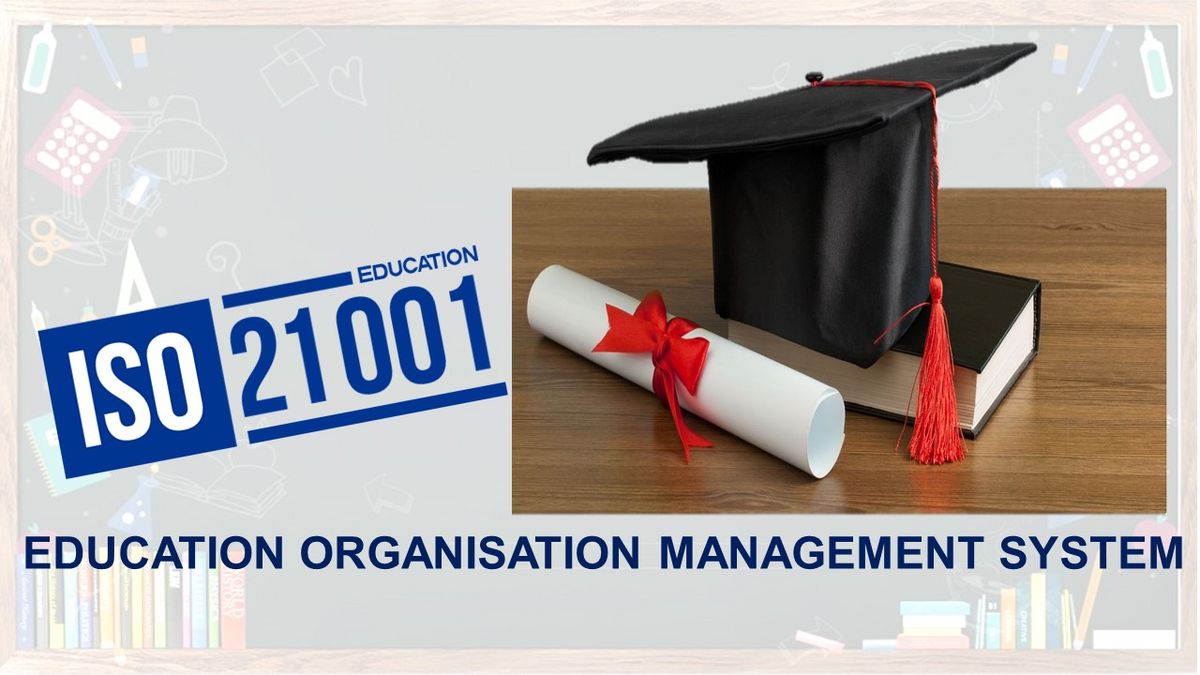Today I’m going to introduce you to a management system standard specifically beneficial to Educational organisations.
I remember when we first started working with generic quality management system standards and now we are progressing towards sector specific management standards. EOMS is that type of a management system standard applicable to all types of educational organisations.
In this blog, we will try to learn all about this standard and its requirements and how you can go about implementing it in your organisation. Let’s have fun learning about EOMS in this blog!
What is ISO 21001 Education Organisation Management System (EOMS)?
ISO 21001, EOMS specifies requirements for a management system for educational organizations when such an organization that:
- Focuses on interactions between an educational organization, the learner, customers and other relevant interested parties
- Provide, share and facilitate the transfer of knowledge to learners through teaching, training or research, regardless of type, size and product and service provided
Now that we understand what is ISO 21001 Education Organisation Management System (EOMS), it’s time for me to explain more about why we need this standard.
The education sector globally encompasses:
- Many national and regional regulations (laws)
- Many national, regional and international “private standards” (education industry practice)
- Many national formal standards
- One international standard (ISO 9001)
ISO 21001 offers a common management tool for organizations providing educational products and services
- Helping educational organizations deliver quality in today’s challenging educational environment
- Offering guidelines to help organizations meet requirements of learners and other customers
Let’s now understand basics of this standard.
- Specifies requirements for a management system for educational organizations when such an organization:
- needs to demonstrate its ability to support the acquisition and development of competence through teaching, learning or research, and
- aims to enhance satisfaction of learners, other beneficiaries, and staff through the effective application of its EOMS, including processes for improvement of the system and assurance of conformity to the requirements of learners and other beneficiaries.
- Requirements are ‘generic’ and intended to be applicable to any organization that uses a curriculum to support the development of competence through teaching, learning or research, regardless of the type, size or method of delivery.
- Applied to educational organizations within larger organizations whose core business is not education, such as professional training departments.
- Does not apply to organizations that only produce or manufacture educational products.
ISO 21001: Principles
- Focus on the needs of learners and other beneficiaries
- Engagement of People
- Process Approach
- Improvement
- Evidence-Based Decisions
- Visionary Leadership
- Relationship Management
- Social Responsibility
- Accessibility & Equity
- Ethical Conduct
- Data Security & Protection
For each principle, the standard provides:
- Definition
- Rationale
- Key benefits
- Suggested actions
So how to go about the journey of implementing the requirements of the standards and attaining the certification. This can be divided in four phases.
Phase I
- Make people gain knowledge about EOMS and its benefits to the organization
- Address all the requirements in the documentation
- Identify documented information to be maintained.
- Identify documented information to be retained.
Phase II
- Ensure adoption of process approach.
- Ensure risk based thinking is applied & implemented.
- Ensure internal auditors are qualified by attending relevant training
Phase III
Implementation of set processes, conduct internal audits, Management review and deploy PDCA approach
Phase IV
Stage I and Stage II audits by certification body
This certification has several benefits such as:
- Ensures better alignment of educational mission, vision, objectives and action plans
- Inclusive and equitable quality education for all
- Facilitating self-learning and lifelong learning opportunities
- Enabling more personalized learning and effective response to special educational needs
- Consistent processes and evaluation tools to demonstrate and increase effectiveness and efficiency
- Increased credibility of the educational organization
- Recognized means to enable organizations to demonstrate commitment to education management practices in the most effective manner
- Provides a model for improvement
- Harmonization of national standards within an international framework
- Widened participation of interested parties
- Stimulation of excellence and innovation
Who will benefit from ISO 21001?
- Learners
- All types of educational organizations (public, private, self-sufficient, non-profit)
- Interested parties and stakeholders (teachers, parents, Government, NGOs, trade unions, etc.)
Wide scope:
- From kindergarten to post-doc
- Including vocational education and training
- Including face to face and distance learning
Multitude of support services
- Libraries
- Counselling (cognitive, vocational, professional)
- Restaurants, cafeteria, canteens, etc.
How the Organizations will get benefited?
- Consistency in Processes, product and/or service quality.
- Greater costs savings due to efficiently managed delivery of educational products and services.
- Better control over all the Educational delivery activities from start to finish
- Effective control over all the external providers
- Greater learners’ and other beneficiaries satisfaction due to fulfillment of their needs & expectations.
- Improvement leads to success and growth. Hence, satisfied interested parties.
- Better exhibition of social responsibilities
- Fewer non conformities.
How it is useful for learners and other beneficiaries?
- Delivery of Educational product or service that meets their requirements and expectations.
- Learners and other beneficiaries will have more confidence in the organization’s / Institutes’ education delivery.
- Overall benefit to society / community by organization demonstrating social responsibility.
What the Employees / Staff benefits?
- Better understanding of their roles & responsibilities.
- Increase in morale towards achieving goals & objectives.
- More opportunities to learn new things by way of training.
- Career growth opportunities.
TUV India being a premier international Certification & Inspection organization with a strong multi-country presence exceeding 150 years and functional in the Indian subcontinent for more than 32 years can help all with ISO 21001 certification.
TUV India credentials
- TUV India is accredited by NABCB for ISO 21001
- Qualified Auditor resources with relevant experience in education sector
- Strategic presence at over 40 locations across India
- Branch office at Sri Lanka
- Training portfolio for ISO 21001 :
- 1 day Awareness courses
- 2 day Internal Auditor courses
- Option of undertaking pre-assessment prior to Stage 1 / Transition from ISO 29990
About The Author

TUV India Pvt. Ltd.
TÜV NORD GROUP
certificationindia@tuv-nord.com
